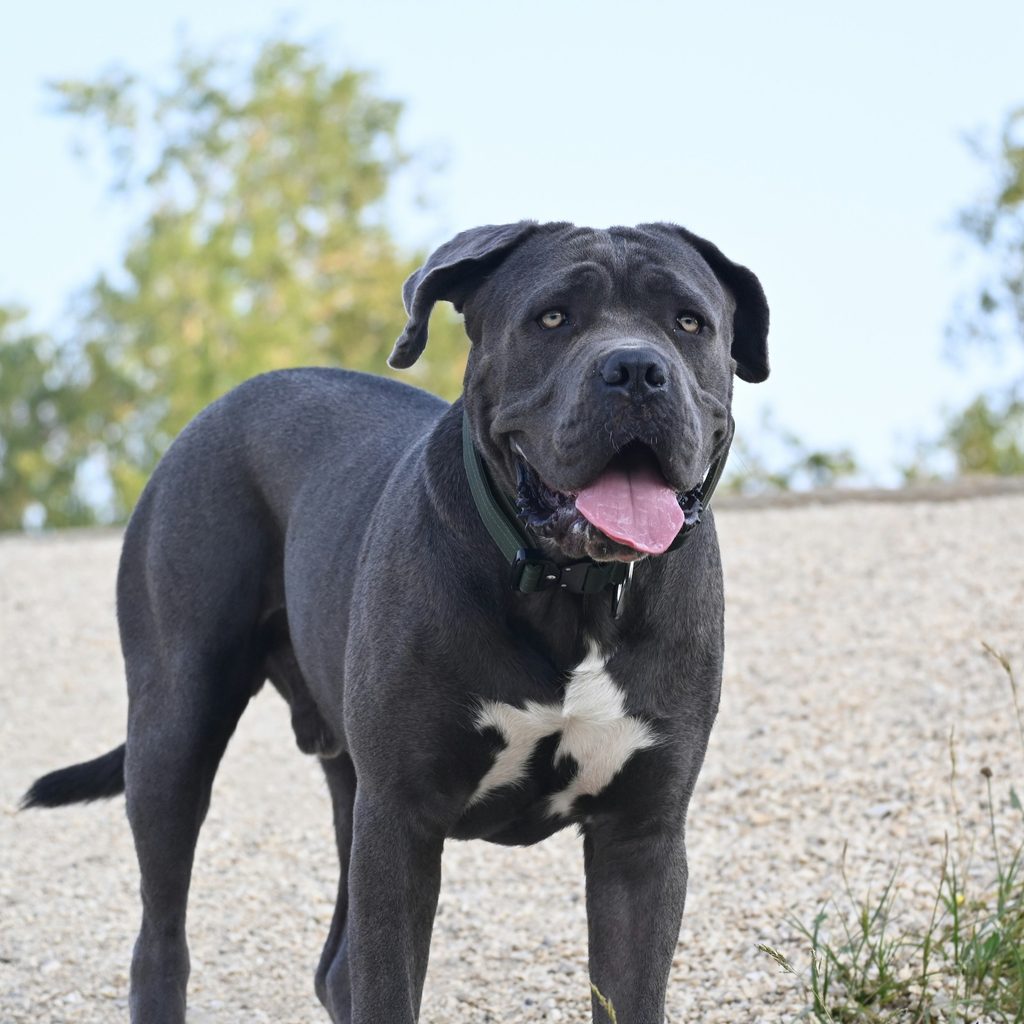
While mastiff-type dogs are known for their gigantic size, protective nature, and fierce loyalty, they haven’t made it to the top of the canine popularity list. And that’s OK! Not every home and person can provide everything such a large working dog needs to thrive, which is why it’s so important to do research before bringing home a mastiff.
You’ve most likely heard of several mastiff breeds, including the intimidatingly huge English mastiff, but only the most seasoned canine experts can name every mastiff-type dog out there. That’s because many of them go by a slightly different name, and a few have yet to be recognized by the American Kennel Club.
All in all, these are the 13 mastiff breeds you should know about.
Boerboel (South African mastiff)
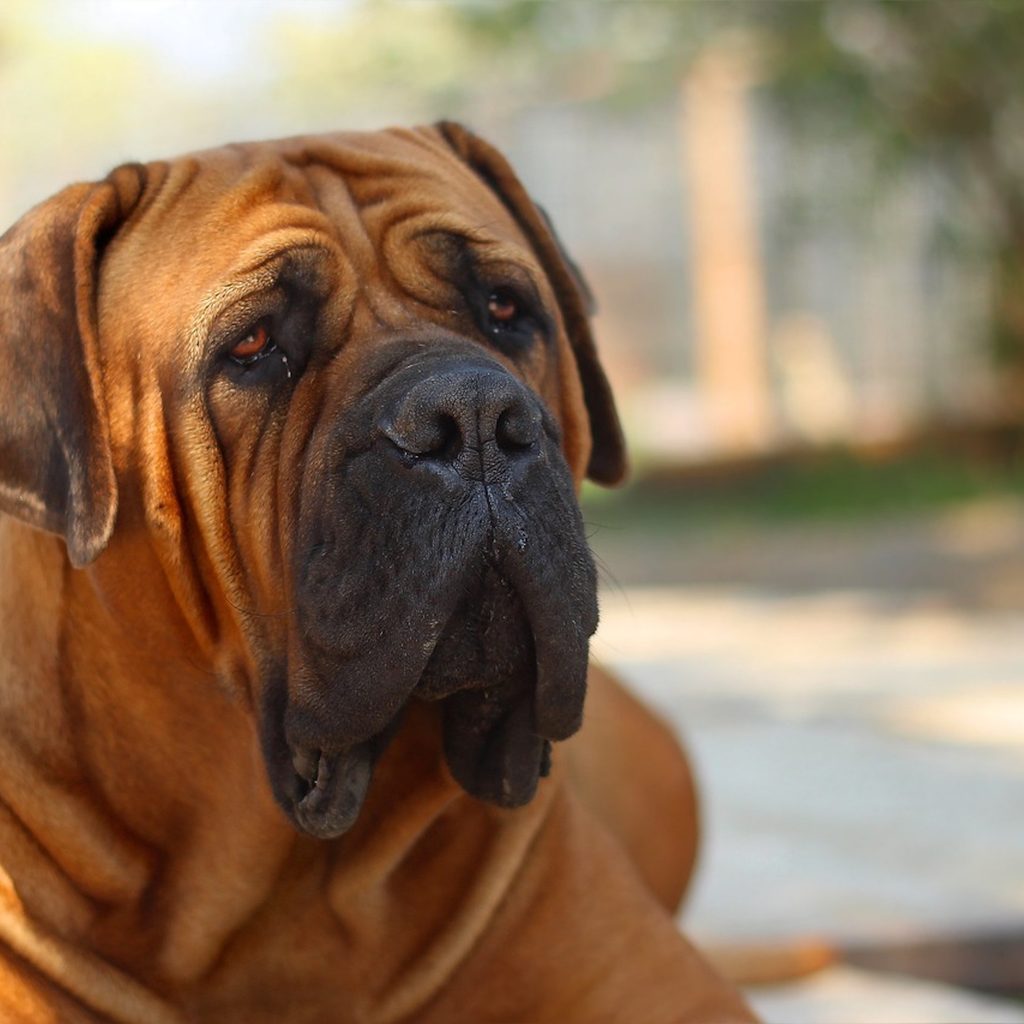
This huge African breed has been around for centuries, guarding homes and farms from predators like hyenas and large cats. Although they’re intimidating and excellent at protecting their homes, they are also gentle giants when it comes to the people and animals they watch out for. They can be wary of strangers and rather stubborn, but Boerboel dogs are also eager to please and very observant.
Broholmer (Danish mastiff)
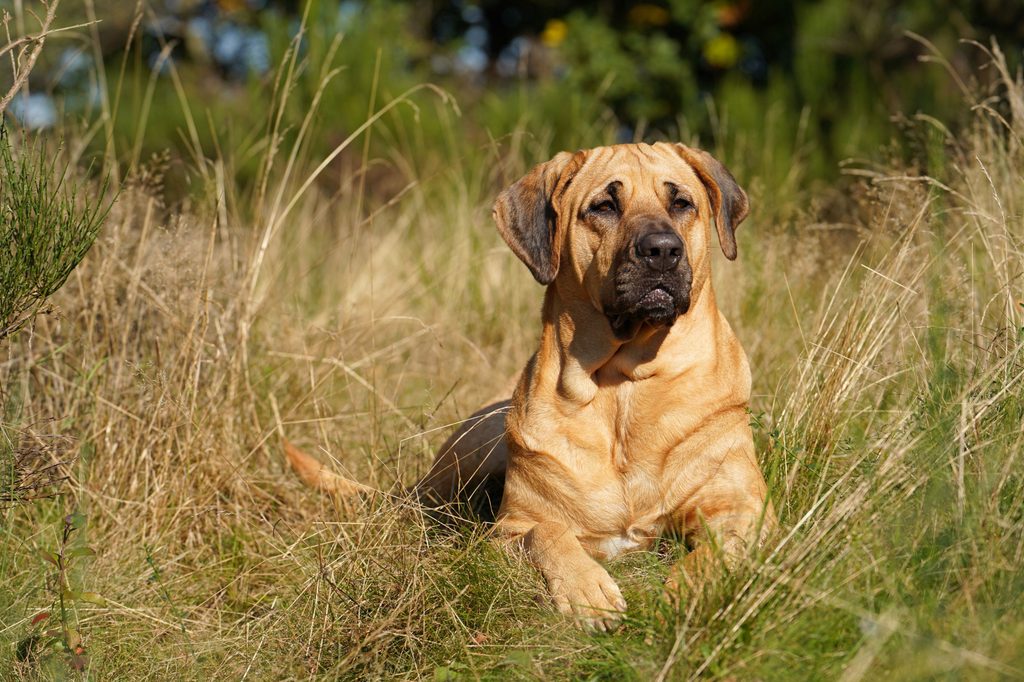
This Danish mastiff was often seen in 19th-century Copenhagen, lounging in front of butcher shops or calmly guarding the animals in the city’s markets. They are just as large as any other mastiff breed, but as the American Kennel Club admits, “His size is the only thing that keeps intruders at bay.
The Broholmer has a heart of gold, loves to snuggle, and always wants to be near you, though his preference is to sit on you.” The only reason they’re not a great choice for families with young kids is because they don’t know their own size!
Bull mastiff
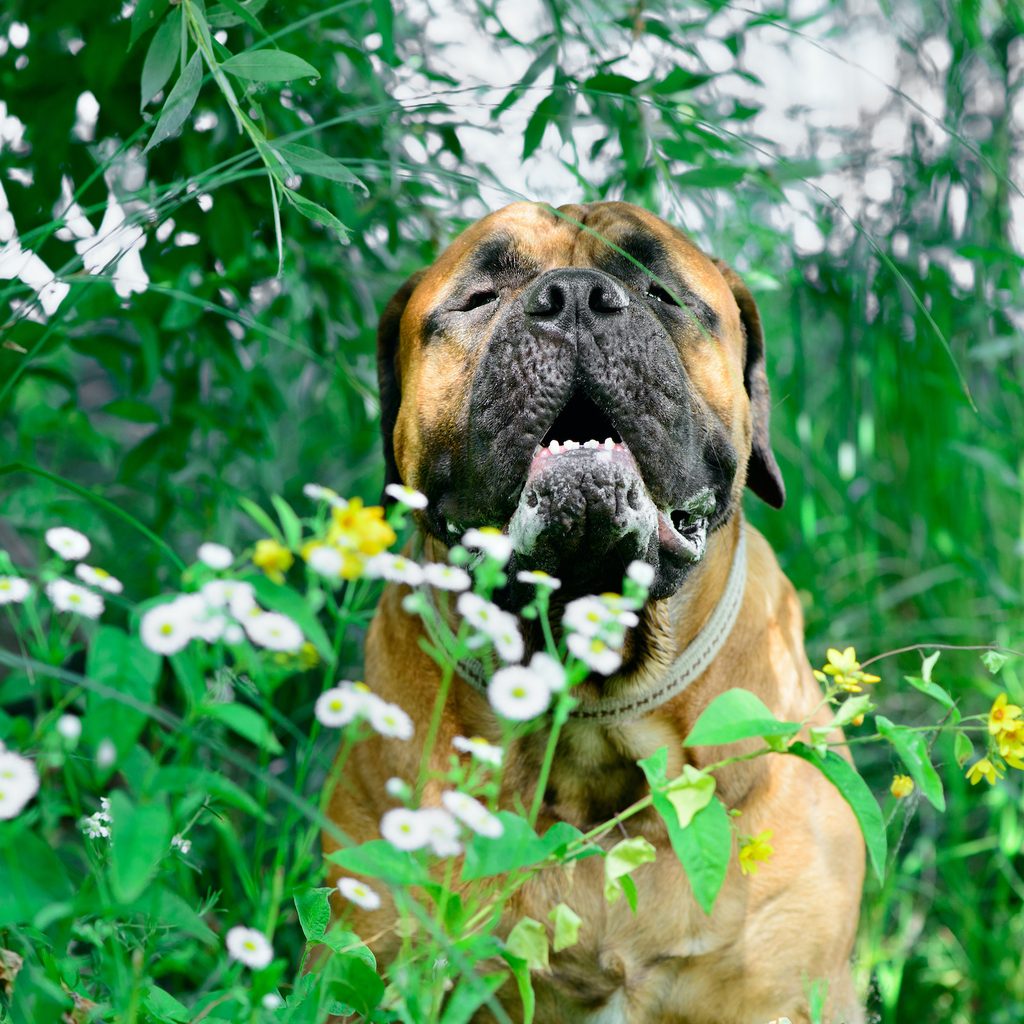
The Bull mastiff was bred in 19th-century England by crossing the English mastiff and the Old English bulldog. They aren’t as large as their English mastiff relatives, but they have the same amount of confidence, loyalty, and love for their families.
Most bull mastiffs are just as happy to be an involved family dog as they would be to guard a home in the countryside. However, these dogs do need jobs to do, so if they don’t keep busy with exercise, family time, and alerting you of passersby, they may give themselves something to do.
Cane corso (Italian mastiff)
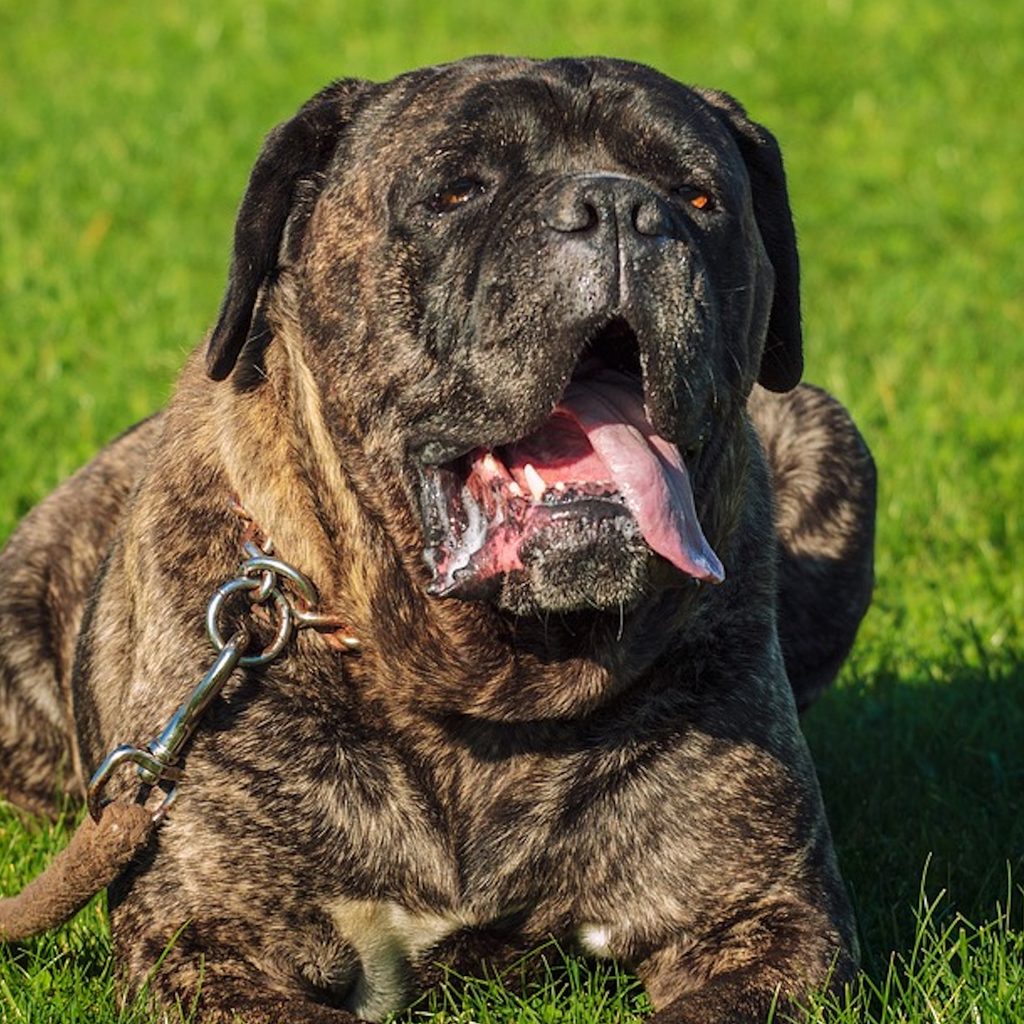
The cane corso is the most popular of the mastiff breeds, but many people don’t even know that this is a mastiff breed! But sure enough, cane corsos are mastiff-type dogs from Italy that were created by breeding ancient mastiff dogs called Mollosers with native Italian dogs. This happened back during the height of the Roman Empire (yes, seriously), when these dogs were used in warfare.
As time went on, however, they became accustomed to more domestic jobs like guarding the home and working on the farm. Today, these dogs make loyal companions and excellent bodyguards, though they require plenty of training to keep stubbornness at bay.
Dogue de Bordeaux (French mastiff)

This sturdy, muscular mastiff breed is known for being exceptionally affectionate with loved ones, except while on watchdog duty. They won’t hesitate to alert or even guard to keep their families safe, but they are also highly intelligent, highly driven dogs who can excel with the right amount of training. However, they can be prone to breathing problems because of being a brachycephalic, or squishy-faced, breed.
Mastiff/English mastiff
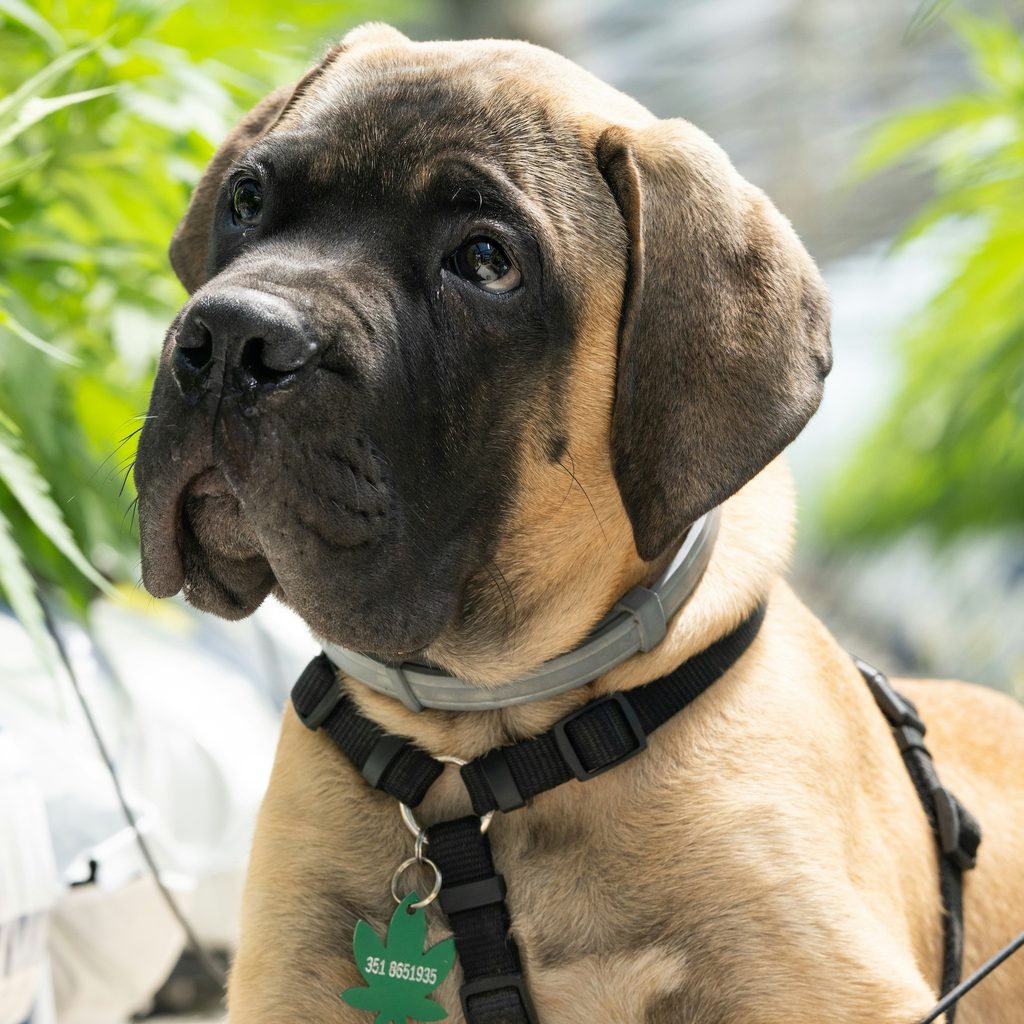
When someone mentions a “mastiff” without specifying a specific kind, you can safely assume they are talking about an English mastiff. These dogs are positively massive, with many outweighing their owners when fully grown, but are the exact definition of a “gentle giant.” English mastiffs make affectionate, loyal family pets, though they do require plenty of training and socialization as a puppy — just like all mastiffs.
Neapolitan mastiff

These dogs may look like big piles of wrinkles, but they’re also muscular, brave, and incredibly strong-willed pups. Neapolitan mastiffs make vigilant guard dogs, too, and their appearance can be quite intimidating. They’ve been around since the days of ancient Rome, and they’ve been adored for both their watch dog qualities and their dignified, loyal companionship.
Pyrenean mastif
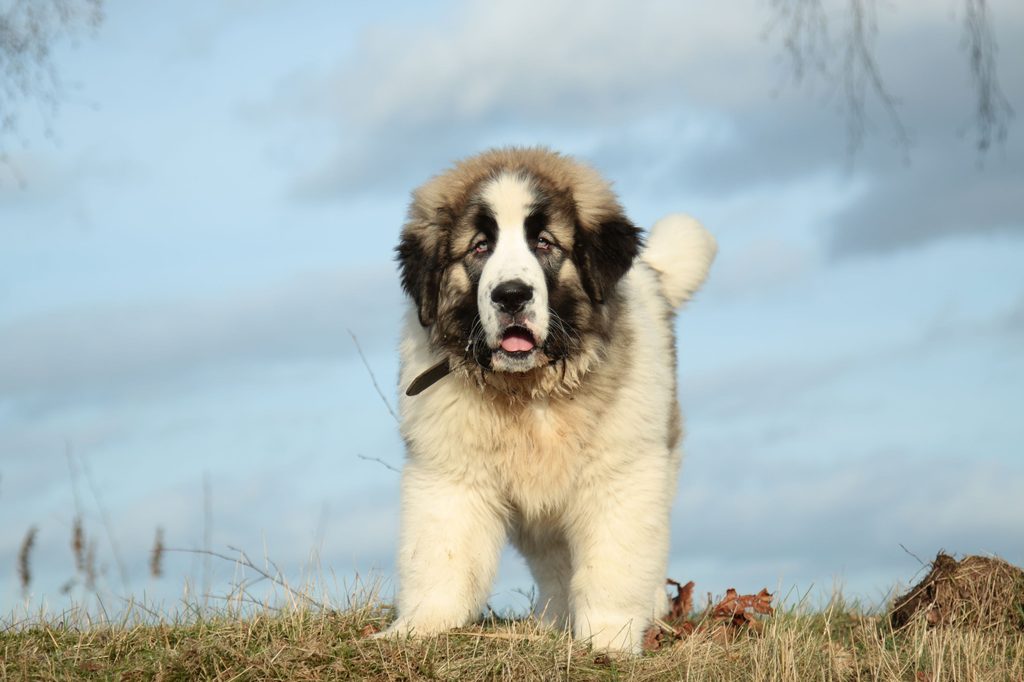
This extremely rare mastiff breed comes from the Pyrenees mountains of Spain, where they protected owners, homes, and flocks from some of the fiercest predators known to man. They alerted to and even fought bears, wolves, and even thieves! When not guarding their owner, however, Pyrenean mastiffs are likely making friends or lounging around. They have a very low prey drive, and will likely choose to stay near their loved ones rather than chase a bird or squirrel.
Spanish mastiff
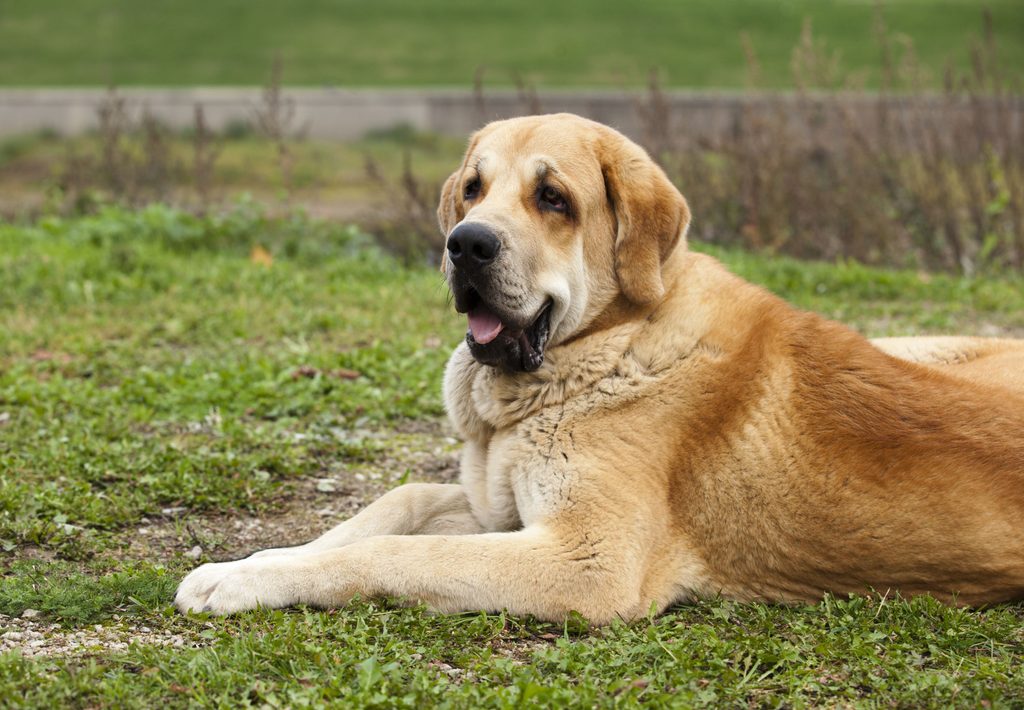
This large dog was bred to accompany Spanish shepherds and ranchers when guiding their flock from one field to another. They are confident and brave, even in the face of predators, and their bark is an intimidating sound that can you can hear from far away. Like other mastiffs, these dogs thrive when they have a job to do, but they can also be loving and affectionate to those they know and love.
Tosa Inu (Japanese mastiff)
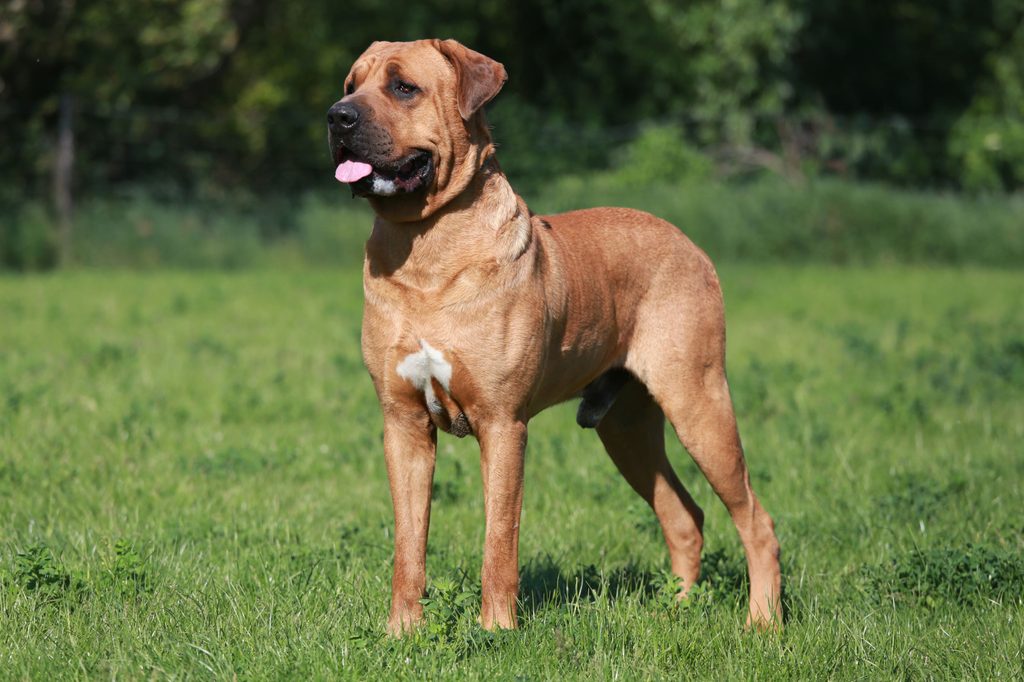
The Tosa Inu, or “Tosa,” is the largest Japanese dog breed. Sadly, they were originally bred for dogfighting, but they now enjoy lives as watchdogs and companions. These dogs are vigilant, calm, and patient, though they can also be bold, confident, and loving. However, they can also be reactive to other dogs that they consider as threats, so training and socialization are necessary.
Tibetan mastiff

These massive, fluffy dogs are surprisingly agile for their size, making them a formidable foe for any thief, intruder, or predator. Tibetan mastiffs have guarded the monasteries of Tibet for thousands of years, and it is believed that they are the ancestors of all contemporary mastiff breeds. These dogs can be aloof, territorial, and even aggressive with those they don’t know, but they are incredibly loyal and devoted to their families.
Do any of these mastiff breeds stand out to you? Whether you’re looking for a watchdog, a livestock guardian dog, or even a family pet, one of these loyal, vigilant breeds could be your perfect pick. If you do choose a mastiff breed, make sure you have plenty of space and time to keep them occupied. These working dogs will be sure to give themselves a job if you don’t!




